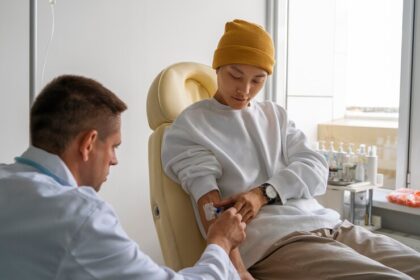We’ve all felt that uncomfortable twist in our abdomen – bloating after a meal, a strange ache under the ribs, or that gassy, sluggish feeling that just won’t go away. But how do you know if what you’re feeling is coming from your gut or your liver?
It’s a tricky question. These two major organs sit side-by-side and often cause overlapping symptoms. So if you’re trying to figure out whether your discomfort is something like irritable bowel syndrome (IBS) or something more serious like liver inflammation, this guide will help break it down.
Gut Trouble? Here’s What to Look For:
The gut includes your stomach, small and large intestines, and basically, your digestive highway. When things go wrong here, symptoms are usually related to how food is processed and absorbed.
It reacts quickly to what you eat, how you move, and even how stressed you are. Conditions like IBS, gastritis, or food sensitivities often flare up and subside depending on your lifestyle.
Common gut-related signs:
- Bloating and gas, especially after meals
- Changes in bowel habits (constipation, diarrhea)
- Cramping, especially in the lower abdomen
- Heartburn or acid reflux
- Food intolerances or nausea
These symptoms often come and go and can be triggered by stress, diet, or infection.
Could It Be Your Liver Instead?
When discomfort stems from the liver, it’s often more subtle and systemic. The liver helps process toxins, metabolize nutrients, and regulate many essential body functions, so symptoms can be a bit less “digestive” and more general.
Because it doesn’t signal pain the same way your stomach does, liver issues can go unnoticed for years. Often, fatigue or vague discomfort is the only clue that something deeper is going on.
Pay attention to:
- Discomfort or pressure in the upper right abdomen, especially after eating
- Persistent fatigue or low energy
- Unexplained weight changes
- Yellowing of the skin or eyes (jaundice)
- Dark urine or pale stools
Specialists in gastroenterology, like Dr Fernandes Mark Lee, often see patients who thought they had a “sensitive stomach,” only to discover that their liver was struggling – especially in the early stages of conditions like Non-Alcoholic Fatty Liver Disease (NAFLD).
Because liver disease develops quietly, Dr Fernandes Mark Lee uses tools like Fibroscan and detailed blood work to catch early signs – often long before symptoms become obvious. Many of his patients have overlapping gut and liver issues, which makes expert evaluation key to accurate diagnosis.
Quick Self-Check: Liver or Gut?
Ask yourself:
- Does the discomfort worsen with certain foods? (→ Gut)
- Is there a feeling of fullness or pressure under the right ribs? (→ Liver)
- Do I notice changes in stool or urine color? (→ Liver)
- Is my bloating linked to stress or meals? (→ Gut)
- Am I often tired without a clear reason? (→ Possibly liver)
If you’re nodding “yes” to both sides, it might not be one or the other – many conditions can involve both systems.
So, what’s next?
If your discomfort is frequent, getting worse, or hard to explain, it’s time for a professional evaluation. Gastroenterologists are trained to look at the whole digestive system, including the liver, to uncover what’s really going on.
Ignoring persistent symptoms doesn’t make them go away. Trust your body, and when in doubt, trust a gut and liver specialist to help you figure it out.




